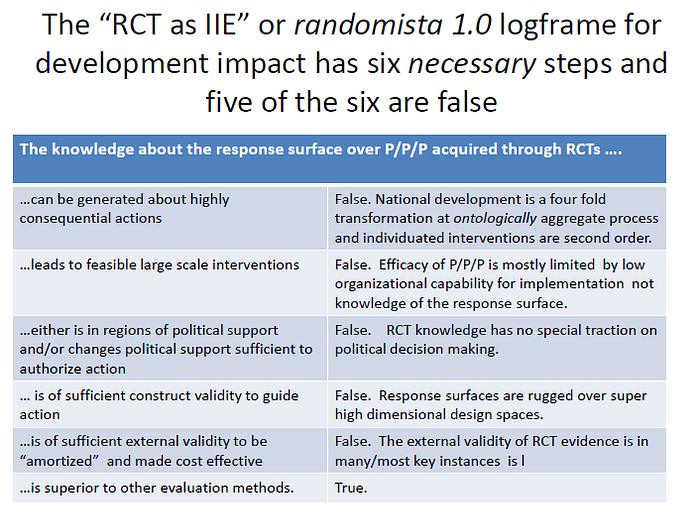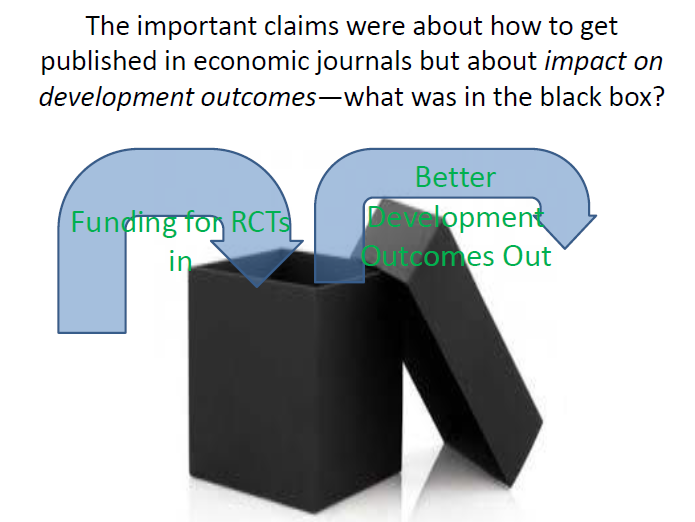Lant Pritchett — The Debate about RCTs in Development is over.
“Lant Pritchett is so fun to listen to, sometimes you could forget that he is completely full of shit”- Angus Deaton comment on a paper by Pritchett
Must watch development lecture of the day — Lant Pritchett, a veteran in the development field, gave a talk recently at DRI at NYU.
There has been a debate in development economics over the last 20 years as some claimed the use of RCTs as a tool for independent impact evaluation would significantly improve development practice and hence development. While right about the methodological claims about the superiority of randomization to produce cleaner estimates of the LATE (local average treatment effect) of projects and programs, this, in and of itself, does not change development practice. All of the five claims needed to sustain a positive model in which RCT/IIE has a major positive impact are demonstrably false. The proponents of RCTs have responded to losing the first round decisively by changing significantly both their claims and their practice.



















Related:
In 2014, Jim Young Kim was the first World Bank President to visit Somalia since McNamara. What the World Bank chose to highlight in its official publicity about Dr. Kim’s visit was that it had figured out a way to use mobile phone surveys to track the poverty status of people in Somalia on a quarterly basis. Imagine the joy and celebration among Somalis to know that the World Bank was going to promote Somalia’s national development not with a port upgrade, or a road or electricity or water, or even a school or a clinic, but by being able to track and tell them every quarter just how poor they really are — something I suspect they know quite well already.
2. Getting Better All the Time? book review by Angus Deaton
It is at the end of the book that I became most unhappy. He claims that there was a steady improvement in living standards after Watt invented the steam engine in 1763, brushing aside a century and a half of serious inquiry, much of which argues the opposite. Never mind the new cities without sanitary facilities — one district in Manchester had only about 30 “necessaries” for 7,000 people. Never mind the mortality and impoverishment that troubled Chadwick, Marx and Engels. Never mind the declining stature of military recruits. And as a monument to airbrushing we read “today many around the world are worried, and with cause, about the wave of despotic cult-of-personality leaders. History suggests this situation will be temporary, and then the positive trends will resume.” The situation was far from temporary for the tens of millions who died because of Hitler, Stalin and Mao.